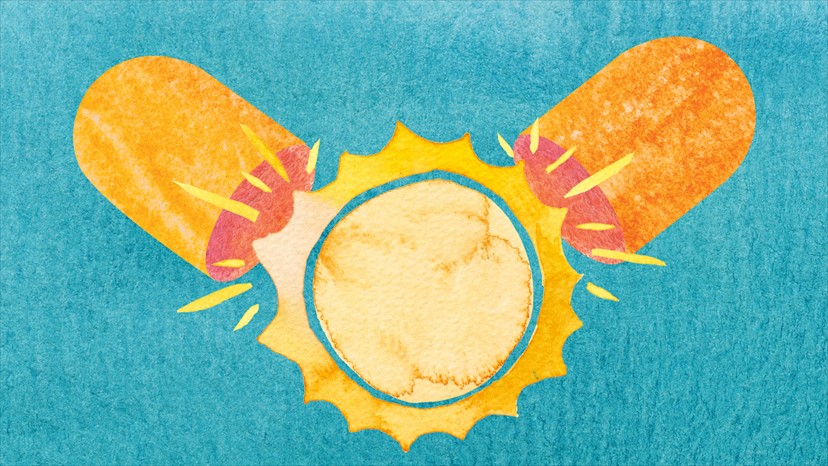However, it’s becoming increasingly clear that while organically-bound calcium from your diet is beneficial, elemental calcium supplements, e.g. calcium carbonate, calcium citrate, etc., may dramatically increase heart attack risk, and other health problems.
A recent study published in the journal Heart found that people who took calcium supplements regularly had an 86 percent greater risk of having a heart attack, which led researchers to suggest such pills should be “taken with caution.”i Dietary calcium, on the other hand, had no such risk! In fact, those who got their calcium exclusively from supplements more than doubled their risk of a heart attack compared to those who took no supplements.
A similar trend has been seen for kidney stones, with people taking calcium supplements at a greater risk, while those who consume a high level of calcium in food at a reduced risk.ii There have been a number of studies that indicate calcium supplements increase your risk for cardiovascular incidents and other problems, as well as NOT being of much benefit to your bones.
Cardiovascular
A 2010 meta-analysis showed calcium supplements (without coadministered vitamin D) are associated with a 27% increased risk for heart attack.iii Even when calcium was administered with vitamin D, which helps you absorb and utilize calcium, elemental calcium still increased heart attack risk by 24 percent.
A 2008 study found calcium supplements are associated with a greater number of heart attacks in postmenopausal womenv
A 2004 study showed that people with excess calcium in their coronary artery and who take statins have a 17-fold higher risk of heart attacks than do those with lower arterial calcium levels; researchers concluded that the two most definitive indicators of heart attack were LDL levels and arterial calcium build-up
Osteoporosis and Bone Density
A 2010 article presented evidence for a total lack of support in the research for calcium supplements reducing fracture risk.
A 2007 study showed that calcium from dietary sources has more favorable effects on bone health than calcium from supplements in postmenopausal women.
A 2009 study of postmenopausal women using calcium supplements showed that, although calcium loss from bone was slowed, bone loss was still occurring.
What Makes Calcium Supplements Potentially Dangerous?
Your body does not make calcium, and in fact loses this important mineral daily through your skin, nails, hair, sweat and elimination, which is why you must replace it on a regular basis. Historically this has been through dietary sources.
It has been estimated, however, that your body excretes as little as 100 mg a day, making the current recommendations by the National Osteoporosis Foundation for women over 50 to take 1,200 mg a day a bit troubling. When we compare our calcium-rich diet to the traditional calcium-poor Chinese peasant diet, which was free of cow’s milk and calcium supplements, approximately 250 mg a day of plant-based calcium was all that was needed to fulfill their bodily needs – and this is a culture with no word for “osteoporosis” in its 3,000+ year old language!
Due to the fact that about 99 percent of your body’s calcium is stored in your bones and teeth, if you don’t get enough calcium, your body will use the calcium reserves in your bones to perform vital metabolic functions. This is where the idea that supplementing with calcium could prevent calcium loss from your bones comes from — but it is an overly simplified theory that lacks solid evidence to back it up, especially in Western, modernized cultures, which consume unprecedentedly large amounts of dairy-derived, fortification-based and supplemental calcium.
The truth is that taking any calcium in excess or isolation, without complementary nutrients like magnesium, vitamin D and vitamin K2, which help keep your body in balance, can have adverse effects, such as calcium building up in coronary arteries and inducing heart attacks. Even taking calcium with vitamin D does not appear to be sufficient to prevent these types of adverse effects.
So when you take a biologically foreign form of calcium (such as limestone, oyster shell, egg shell and bone meal (hydroxylapatite)), or when your body’s ability to direct calcium to the right places becomes impaired (as when you are deficient in vitamin K2), calcium may be deposited where it shouldn’t be, which can lead to multiple health problems, including heart attacks. It’s more likely your body can use calcium correctly if it’s food-based calcium.
Good sources include:
Organic grass fed and finished raw milk and cheese from pasture-raised cows
Leafy green vegetables
The pith of citrus fruits
Carob
Sesame seeds and wheatgrass
Calcium from dietary sources is typically better absorbed and utilized than calcium from supplements, which is why studies involving calcium from natural food sources have shown favorable results, including a 25 percent lower risk of dying from all causes.
It is also vital to remember that magnesium, along with a variety of additional trace minerals such as strontium, boron, and the other crucial vitamin K2, may all be every bit as, if not even more important than calcium.
FOR MORE INFORMATION READ THESE:
4 Steps to Help Protect Your Bones No Matter What Your Age
The Vitamin That Is ‘as Good as Drugs’ at Reducing Blood Pressure




















